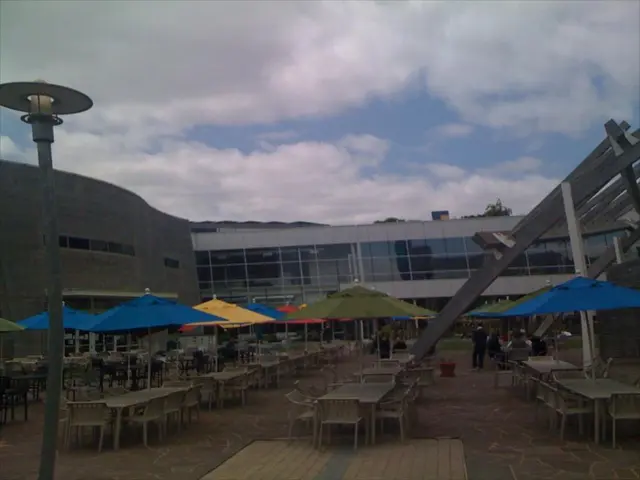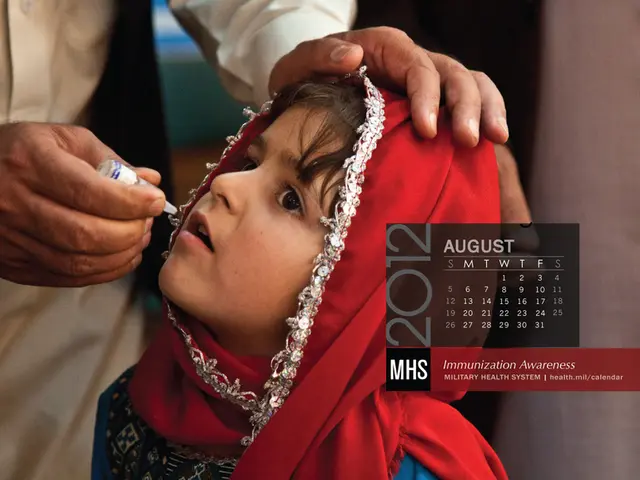Turkey and Libya: Evolution from Military Alliance to Political Alliance
In a series of significant developments, Turkey and Libya have been strengthening their relationship, aiming to promote peace and stability in the war-torn North African country.
The 5+5 Joint Military Committee (JMC) talks, held in Ankara in 2021 and 2024, focused on discussing steps to promote peace and stability in Libya. These discussions followed the failure of the offensive and increased international mediation efforts, which eventually led to the approval of a cease-fire on Oct. 23, 2020.
Notable meetings between high-level officials from both nations took place during this period. For instance, Col. Gen. Saddam Haftar, the son of Gen. Khalifa Haftar and Deputy Commander of the Libyan National Army (LNA), visited Ankara in April 2025 to meet with Minister of National Defense Yaşar Güler. Similarly, Saddam Hafter had previously met Güler at the "Saha Expo 2024" International Defense and Space Fair.
In August 2025, a visit to the Port of Tripoli saw Güler holding meetings with several high-level Libyan officials, including the Libyan minister of Defense, the chief of the general staff, and the commander of the navy. During this visit, Saddam Hafter praised Turkey's operational experience, discipline, and high technological capacity, emphasizing the competence of the TSK in border security.
Turkey's involvement in the Second Libyan Civil War, which began in 2014 and lasted approximately six and a half years, has reshaped the regional equation in the Eastern Mediterranean. The conflict divided Libya into two main axes: the U.N.-recognized Government of National Accord (GNA) based in Tripoli, and the House of Representatives (HoR) in the east, backed by the Libyan National Army (LNA) led by General Khalifa Haftar.
Turkey's commitment to Libya extends beyond political talks. Under several agreements, Turkey provides joint training programs and technical assistance to modernize Libya's security infrastructure. Small-scale clashes continue throughout the country, but Turkey's comprehensive support in the political and military fields is aimed at achieving the goal of a "United and Single Libya."
In addition to political and military support, Turkey and Libya have signed agreements to deepen cooperation, including on intelligence sharing and joint efforts against terrorism and organized crime. One key agreement is the 2019 maritime delimitation deal, accompanied by security and military cooperation frameworks, enhancing joint operations in these areas.
The Turkish Naval Task Group operating off the coast of Libya conducted various training exercises with the Libyan Navy and students from the Libyan Naval Academy. In August 2025, the TCG Kınalıada corvette visited the ports of Tripoli and Benghazi in Libya. Between June 15 and 28, 2025, three military technical delegations from eastern Libya conducted inspections at various military headquarters and training institutions in Turkey.
The end of the war was the result of a stalemate, as neither side achieved absolute military victory. Haftar's forces received significant military and financial support from countries such as Egypt, the United Arab Emirates (UAE), Russia, France, and Saudi Arabia. On the other hand, the GNA, which holds international legitimacy, has received political and military support from countries such as Turkey, Qatar, Italy, and the United Kingdom.
The Libyan National Unity Government (GNU) receives primary support from Turkey and Qatar, while the Libyan National Army (LNA), led by General Khalifa Haftar, is mainly supported by countries such as Egypt, the UAE, Russia, France, and Saudi Arabia. This strategic partnership between Turkey and Libya is considered a "new, important strategic step" towards ending the fratricidal conflict in Libya and establishing a "United and Single Libya."
Read also:
- ICE directed to enhance detention conditions following NYC immigrants' allegations of maltreatment
- Israeli finance minister issues warnings about potential annexation of West Bank territories
- United States faces rebuttal from South Africa over allegedly deceitful human rights report and assertions of land expropriation
- Accident at Rodalben Results in Injuries; Geoskop Area near Kusel Affected After Stormy Weather





